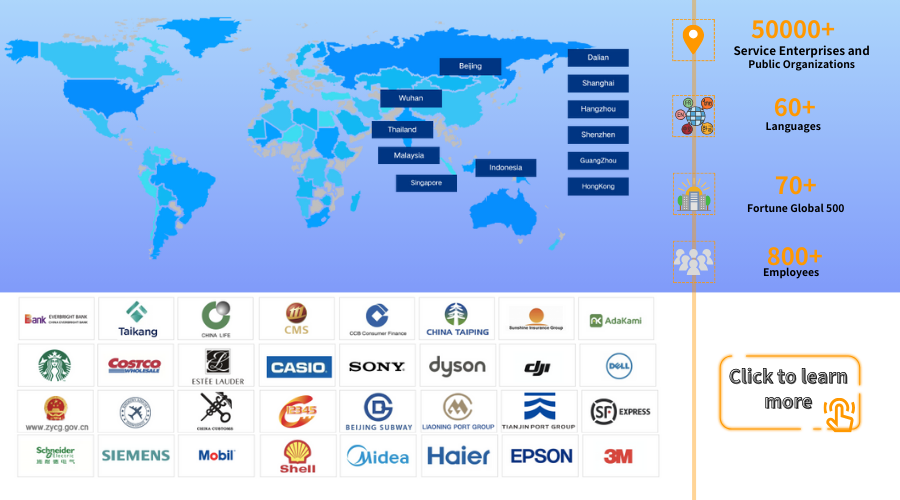Unveiling the Extraordinary: Discovering the Hidden Facts of AI Chatbots
Article Summary:Artificial Intelligence (AI) reshapes industries and transforming our daily lives. This article uncovers some facts about Chatbot that might just redefine your perception of what's possible with AI.
Table of contents for this article
- Amazing Facts you Might not Know about AI Chatbot
- Consumers Are Ready to Buy Things via Chatbots
- Consumers Want Recommendations From Chatbots
- Consumers Have Little Tolerance for Poor-performing Chatbots
- Introducing Udesk' s AI Chatbot
- 》》Click to start your free trial of AI chatbot, and experience the advantages firsthand.
In the ever-evolving landscape of technology, Artificial Intelligence (AI) reshapes industries and transforming our daily lives. Today, these artificial intelligence systems that communicate with people through messaging, text, or speech, are evolving and turning into a necessity in certain industries. All the major players in the field like Google, Apple, Microsoft, Amazon, Slack, etc. are building bots.
Today's AI chatbots are sophisticated conversationalists, capable of understanding complex queries, exhibiting empathy, and even learning from interactions. This article uncovers some facts about Chatbot that might just redefine your perception of what's possible with AI.
Amazing Facts you Might not Know about AI Chatbot
Consumers Are Ready to Buy Things via Chatbots

The potential of chatbots goes beyond just customer service, as they are increasingly becoming a popular choice for consumers to make purchases.
According to a survey by DigitasLBi, 37 % of Americans are willing to make purchases through a chatbot. This statistic highlights the growing popularity and acceptance of chatbots as a medium for online shopping. In fact, on average, consumers would spend over $55 per purchase via chatbots. This indicates that consumers are not only comfortable using chatbots for shopping but also trust them enough to make purchases.
In the UK, a study by myclever Agency showed that 33 % of residents would buy basic items like clothes and food if a chatbot were available. This statistic is reflective of the current trend towards convenience and speed in consumer behavior. With chatbots, consumers can make purchases quickly and easily, without having to navigate complex e-commerce websites or wait on hold for customer service.
Another advantage of chatbots for shopping is their ability to handle multiple transactions simultaneously without any drop in performance. This means that businesses can cater to a large number of customers at once, reducing wait times and increasing efficiency. Additionally, chatbots can handle repetitive tasks such as order tracking and payment processing, freeing up human agents to focus on more complex queries.
Consumers Want Recommendations From Chatbots
As chatbots continue to evolve and improve their capabilities, consumers are increasingly open to receiving recommendations and advice from these virtual assistants. A survey conducted by
DigitasLBi revealed that 37 % of all consumers, and a staggering 48 % of millennials, are willing to seek recommendations or advice from chatbots.
This shift in consumer behavior can be attributed to several factors. Chatbots have become more sophisticated in understanding user preferences and recommending personalized products or services. By analyzing past interactions and user data, chatbots can provide tailored suggestions that align with individual tastes and needs.
In terms of specific areas where consumers are interested in receiving recommendations, the survey highlighted several key categories. Retail stores topped the list, with 22 % of respondents expressing interest in product recommendations from chatbots. This indicates a growing reliance on chatbots to help navigate the vast product offerings available in the retail industry.
Hotels/accommodations ranked second, with 20 % of respondents open to receiving recommendations in this area. Chatbots can assist travelers in finding suitable accommodations based on their preferences, budget, and location, streamlining the booking process.
The travel sector also emerged as a significant area for chatbot recommendations, with 18 % of respondents interested in suggestions for travel destinations, itineraries, and attractions. Chatbots can leverage their access to vast amounts of travel information to make personalized recommendations that match travelers' interests.
Additionally, 12 % of respondents expressed interest in chatbot recommendations for products from a pharmacy. This highlights the potential of chatbots to provide guidance on over-the-counter medicines, health supplements, and personal care products, helping consumers make informed decisions.
Finally, fashion and style garnered 9 % of interest for chatbot recommendations. As the fashion industry becomes increasingly digitized, chatbots can act as personal stylists, suggesting trendy outfits, coordinating accessories, and providing fashion advice based on individual preferences.
Consumers Have Little Tolerance for Poor-performing Chatbots

As chatbots become increasingly integrated into customer service and shopping experiences, the importance of providing high-quality interactions cannot be overstated. According to the DigitasLBi report, a staggering 73 % of Americans stated that they would not use a company's chatbot after a negative experience. This statistic highlights the significant impact that a single bad interaction can have on consumer trust and loyalty.
Moreover, a report by Mindshare further emphasizes the importance of effective problem-solving for chatbots. 61 % of respondents indicated that they would find it more frustrating if a chatbot failed to resolve their issue compared to interacting with a human agent. This underscores the expectation among consumers for chatbots to deliver efficient and effective solutions to their queries and concerns.
The repercussions of poor chatbot experiences extend beyond immediate dissatisfaction. Negative interactions can damage brand reputation and erode consumer confidence, potentially leading to lost sales and customer churn. In today's competitive landscape, where consumers have numerous alternatives at their fingertips, businesses cannot afford to overlook the impact of subpar chatbot performance.
To mitigate the risk of alienating customers due to bad chatbot experiences, companies must prioritize the development and deployment of high-quality chatbot solutions. This involves investing in advanced natural language processing (NLP) algorithms, machine learning models, and ongoing training to ensure that chatbots can accurately understand user inquiries and provide relevant responses.
Introducing Udesk' s AI Chatbot
Udesk's AI Chatbot is an innovative customer service tool designed to streamline communication and support interactions between businesses and their customers. It is applied in various industries: E-commerce, Finance, Travel…
Udesk's AI Chatbot uses advanced NLP technology to understand and interpret customer inquiries in natural language. This enables it to provide accurate and relevant responses to a wide range of queries.
The Chatbot can be integrated with various communication channels such as websites, mobile apps, social media platforms, and messaging apps, providing a seamless experience for customers across different channels.
Welcome to try Udesk's AI Chatbot, empowering your business development.
》》Click to start your free trial of AI chatbot, and experience the advantages firsthand.
The article is original by Udesk, and when reprinted, the source must be indicated:https://www.udeskglobal.com/blog/unveiling-the-extraordinary-discovering-the-hidden-facts-of-ai-chatbots.html
AI chatbotChatbot TechnologyFacts of Chatbot

 Customer Service& Support Blog
Customer Service& Support Blog



